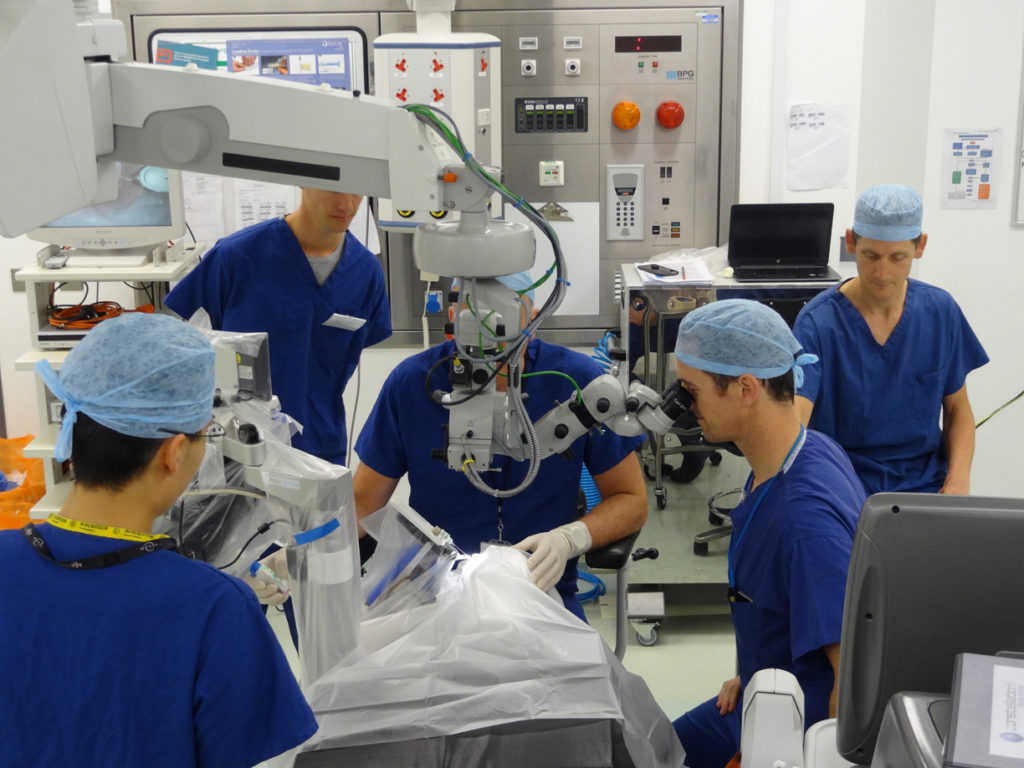Led by Dr Jasmina Kapetanovic and Dr Iain Tullis
A key to successfully reducing collateral injury during surgery – and minimising recovery time afterwards – is clearly defining the extent of the tissue to be removed. To achieve greater precision, we will develop the following technologies:
- Image- or molecular-guided surgical technologies
- novel applications of robotic technology
- surgical organ isolation for cytotoxic cancer therapy.
Oxford has pioneered technologies where fluorescent compounds show up tumour cells in prostate cancer patients, allowing surgeons to be more precise when removing the diseased area and minimising damage to the tissue around it.
Based on these advances, we are now conducting first-in-human, sex-specific assessments of these approaches in pancreatic, renal (kidney), glioma (brain and spinal cord), and head and neck cancer surgery. We are also rolling out the technology developed in prostate cancer to our collaborators in Sheffield.

In eye surgery, we are testing the suitability of robots (pictured right) to perform microvascular cannulations to treat retinal vein occlusions (blockages), a common cause of vision reduction in older people, using tissue plasminogen activator, a protein involved breaking down blood clots.
In parallel, we are developing new compact surgical optical microscopes combining ultra high resolution with ergonomics.